The Giants.com crew is presented with four statements and must decide whether they are Fact or Fiction.
Aside from quarterback, the position that can have the biggest immediate impact on a team is wide receiver.
John Schmeelk: Fact – NFL and collegiate offensives have slowly converged over the last decade, which has resulted in quick transitions for collegiate receivers into productive NFL players at that position. It varies from college to college, but most college receivers can quickly integrate into an NFL offense and be effective right away. There is still a learning curve, but it is easier to work around those deficiencies at wide receiver, where a player can be slotted into a specific role early in the season and slowly have his role expanded.
Dan Salomone: Fact – Back in 2014, Odell Beckam Jr. was doing things that hadn't been done since Randy Moss in 1998. Now it seems like every season since then, someone sets the new rookie record in one category or another. More importantly, you've also seen the production translate to wins for the franchise.
Lance Medow: Fact – If quarterback is atop the list, then you must think about the one position that can help that player's cause the most – and that's a reliable target or playmaker. Case in point, look at what Zay Flowers did for Lamar Jackson, Jordan Addison for Kirk Cousins, Rashee Rice for Patrick Mahomes, Tank Dell for C.J. Stroud and Puka Nacua for Matthew Stafford in 2023. All those players just finished their rookie years and already did wonders for their respective signal callers. It's not just the draft. If you look at wideouts who recently changed teams through free agency and trades, you'll see names such as Tyreek Hill and A.J. Brown. Both completely changed the dynamics of the Dolphins' and Eagles' offenses over the last two years.
Matt Citak: Fact – Recency bias might play a factor in my answer here, but looking back at the last five drafts, it's hard to argue against the wide receiver position having the biggest immediate impact on a team (outside of QB). Going back to the 2019 NFL Draft, we have seen players such as A.J. Brown, Justin Jefferson, Ja'Marr Chase, Jaylen Waddle, Garrett Wilson, and Chris Olave, among others, register more than 1,000 yards receiving in their first NFL season. The Rams' Puka Nacua finished fourth in the league last season with 1,486 receiving yards, which set a new rookie record. In fact, when looking at the all-time NFL rookie receiving leaders, three of the top four players have been drafted in the last few years. The NFL has turned into a passing league, which means wide receiver now sits just behind quarterback in terms of how big of an immediate impact the position can make on a team.
Aside from quarterback, the position that can have the biggest long-term impact on a team is offensive tackle.
John Schmeelk: Fiction – Offensive tackles are extremely valuable in the National Football League, but one elite player on the offensive line is not enough to turn a poor unit into an effective one. An elite pass rusher, however, can help elevate an entire defense, forcing offenses to tailor their gameplans and protections to slowing that player down. See Lawrence, Dexter. There's a reason Nick Bosa is the highest paid non-quarterback in the NFL.
Dan Salomone: Fact – The most important position in all of sports is quarterback, so it's best to protect him. It's true the offensive line needs to be cohesive, but you need a cornerstone piece.
Lance Medow: Fiction – But keep in mind there's still four other players on the line that need to do their jobs. So, while an offensive tackle has a lengthy shelf life, I'm not sure I put that position ahead of pass rusher in terms of long-term impact. If the latter can wreak havoc, he doesn't have to worry about what the other two or three individuals on the line are doing. Case in point, if you examine the top sack leaders in the NFL in 2023, you'll find names such as T.J. Watt (Steelers), Trey Hendrickson (Bengals), Josh Allen (Jaguars), Khalil Mack (Chargers), Danielle Hunter (Vikings), Maxx Crosby (Raiders), Myles Garrett (Browns) and Micah Parson (Cowboys) in that order. Each of those players has suited up for at least three seasons, recorded at least 14 sacks in 2023 and they're all more than capable of wrecking a game, regardless of the caliber of their teammates. If you can find a dangerous pass rusher, he can single-handedly change the trajectory of your defense. I wouldn't go so far to say the same thing about a left tackle.
Matt Citak: Fiction – This one was close, but I have to give the slight advantage to the edge defenders here. Finding a talented pass rusher who can consistently get pressure on the quarterback, year in and year out, is not as easy as it might seem. But once you find one, that player can completely transform a defense. Just looking back at last year's draft, the Houston Texans made a bold move trading up to No. 3 to select Will Anderson Jr. right after taking C.J. Stroud. Less than a year later, you'd be hard-pressed to find anyone that believes it wasn't the right move for Houston, which saw Anderson take home the Defensive Rookie of the Year Award. Not only that, but the Texans' defense took a huge step from 2022 to 2023, and Anderson played a crucial role in that. We saw an even more drastic improvement from the 49ers after selecting Nick Bosa, who helped transform that unit into one of the top defenses in the NFL over the last few years. There is a reason why nine of the last 12 winners of the NFL Defensive Player of the Year Award have been edge rushers. Sign me up for an elite game-wrecker every time.
NFL Media analyst Daniel Jeremiah released his updated ranking of the top 50 prospects in the 2024 NFL Draft.


No. 47 Roman Wilson, WR, Michigan

No. 49 Marshawn Kneeland, Edge, Western Michigan

No. 40 Ricky Pearsall, WR, Florida

No. 41 Payton Wilson, LB, N.C. State

No. 46 Ja'Tavion Sanders, TE, Texas

No. 38 Braden Fiske, DT, Florida State

No. 45 Malachi Corley, WR, Western Kentucky
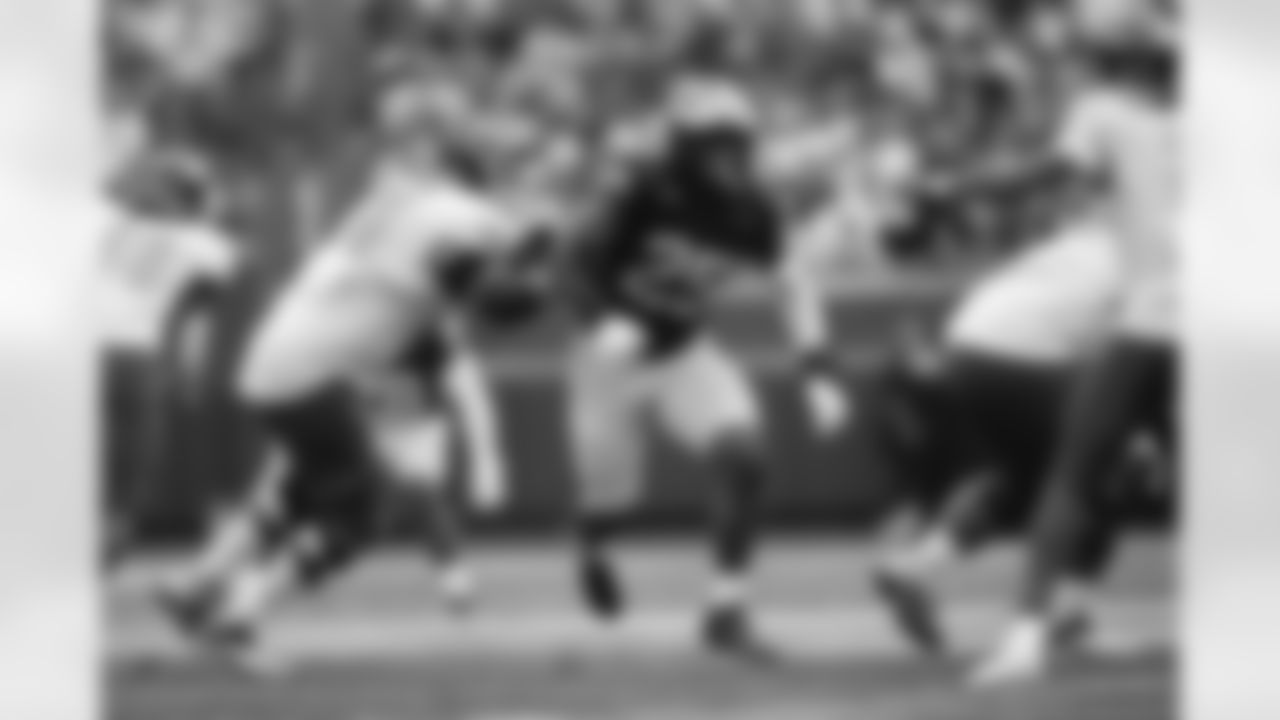
No. 44 Junior Colson, LB, Michigan

No. 34 Ladd McConkey, WR, Georgia

No. 35 Xavier Worthy, WR, Texas

No. 36 Kamari Lassiter, CB, Georgia

No. 49 Jordan Morgan, OT, Arizona
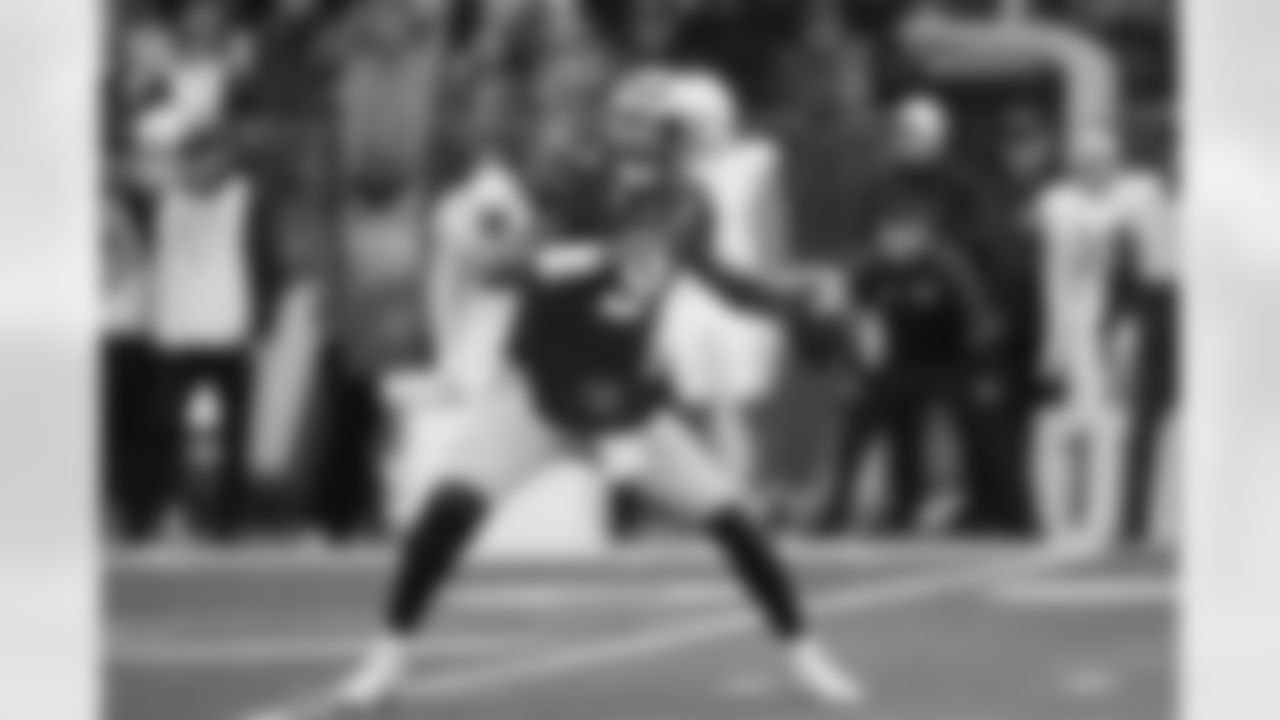
No. 33 Michael Penix Jr., QB, Washington

No. 42 Troy Franklin, WR, Oregon

No. 43 Keon Coleman, WR, Florida State

No. 36 Kool-Aid McKinstry, CB, Alabama
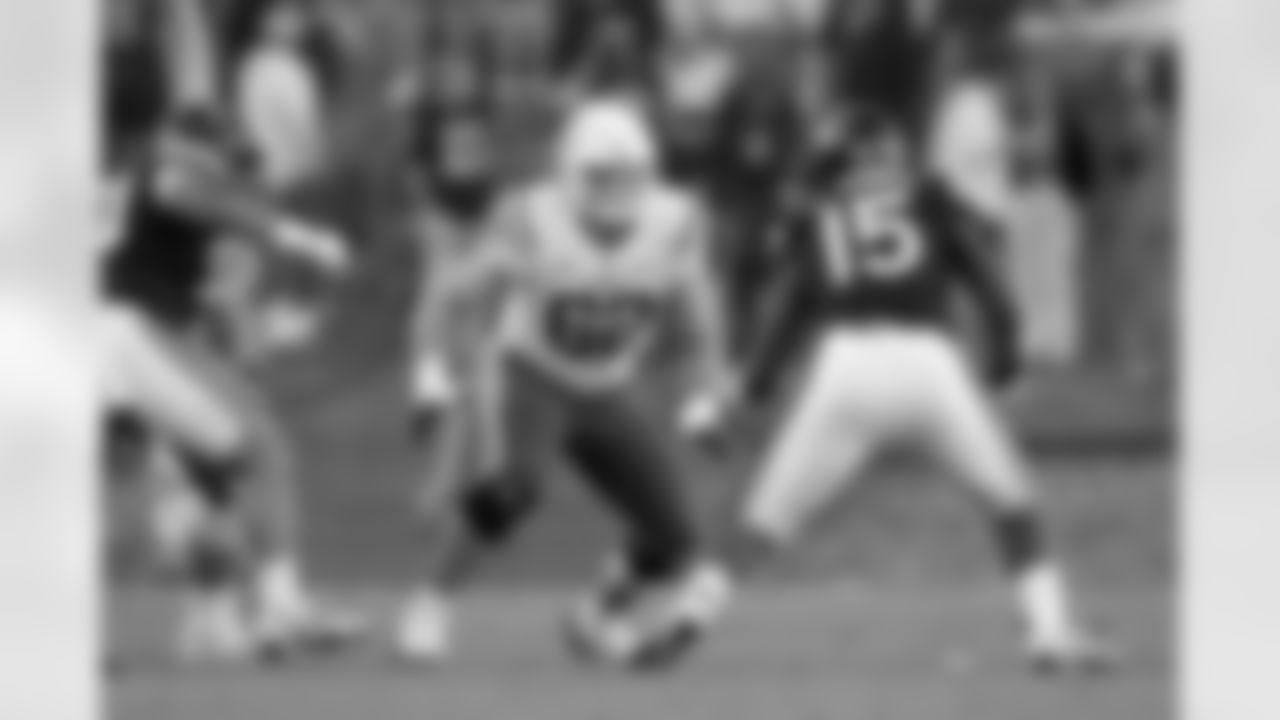
No. 24 Graham Barton, IOL, Duke
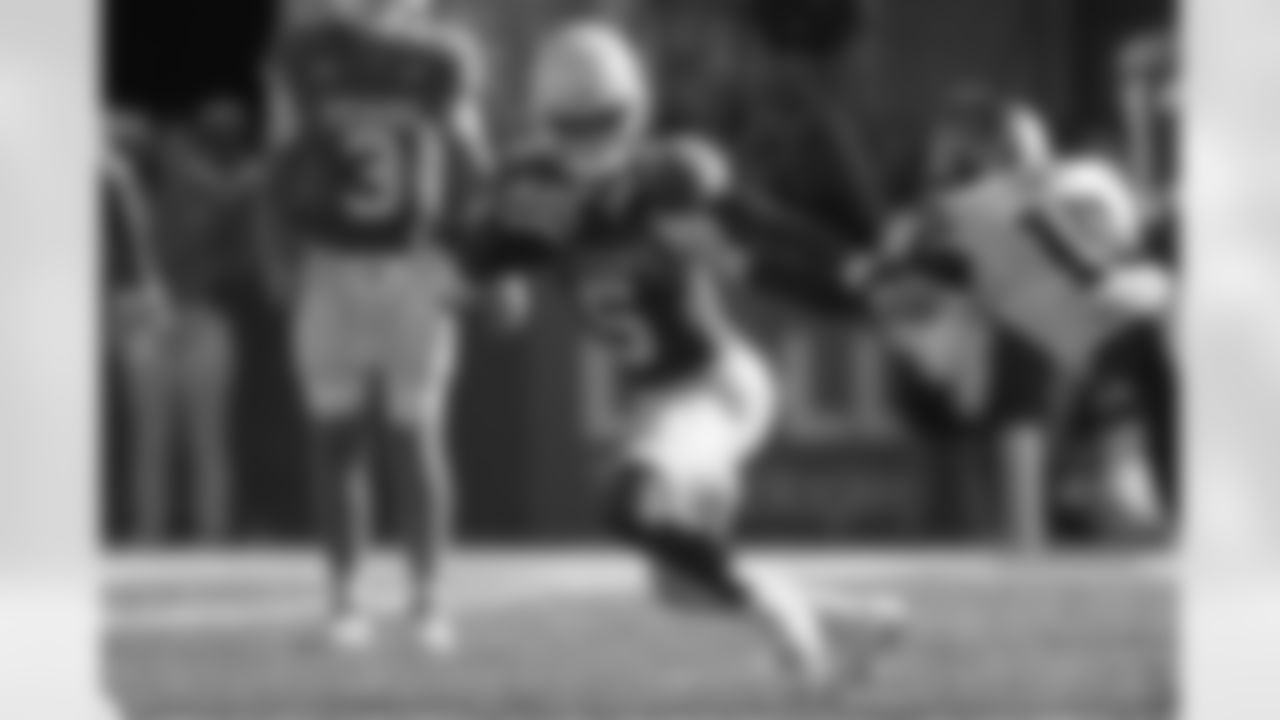
No. 27 Adonai Mitchell, WR, Texas
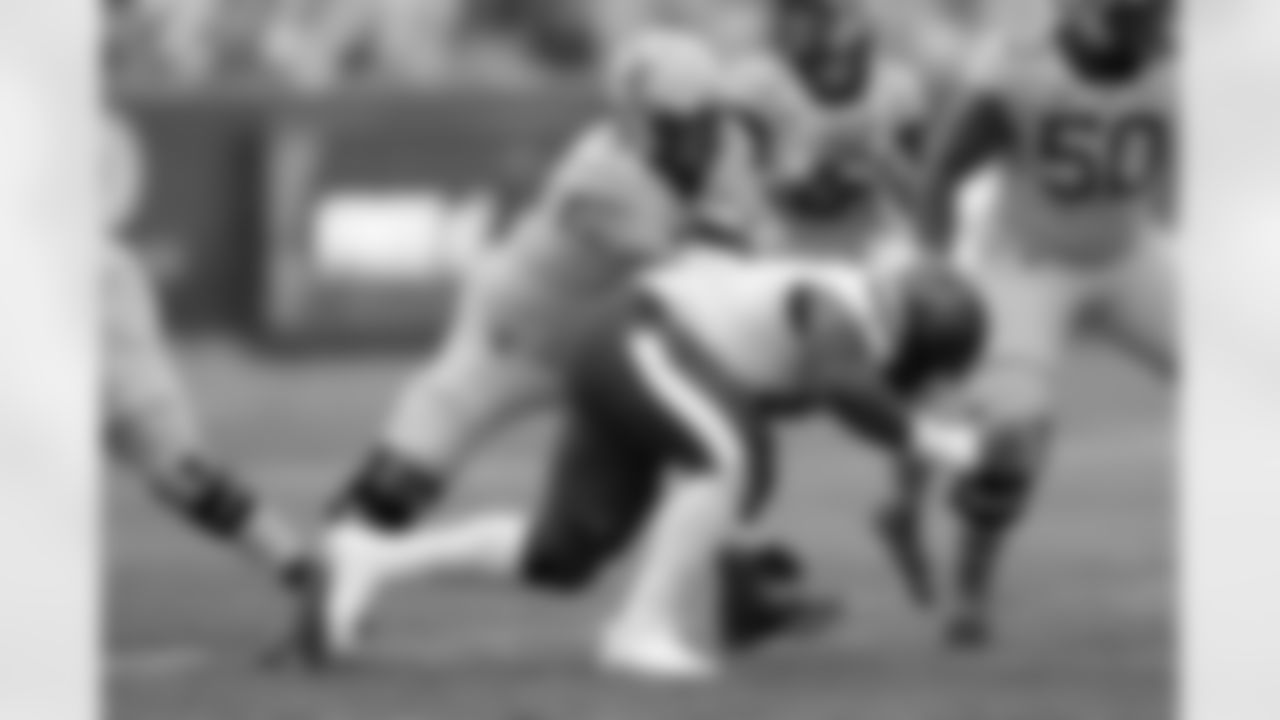
No. 37 Zach Frazier, IOL, West Virginia

No. 25 Cooper DeJean, CB, Iowa

No. 38 Darius Robinson, Edge, Missouri

No. 30 Jackson Powers-Johnson, IOL, Oregon

No. 32 Jer'Zhan Newton, DT, Illinois

No. 20 J.J. McCarthy, QB, Michigan

No. 29 Bo Nix, QB, Oregon

No. 31 Nate Wiggins, CB, Clemson

No. 21 Chop Robinson, Edge, Penn State

No. 28 Ennis Rakestraw Jr., CB, Missouri
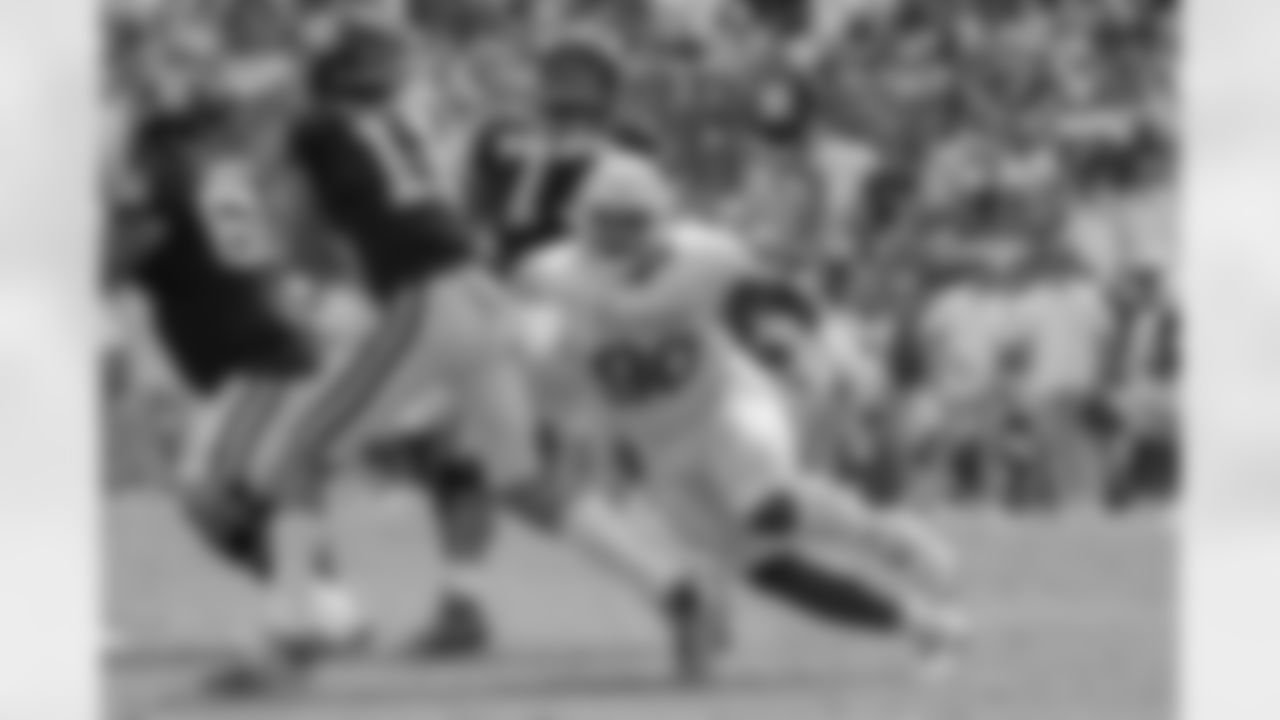
No. 19 Byron Murphy II, DT, Texas
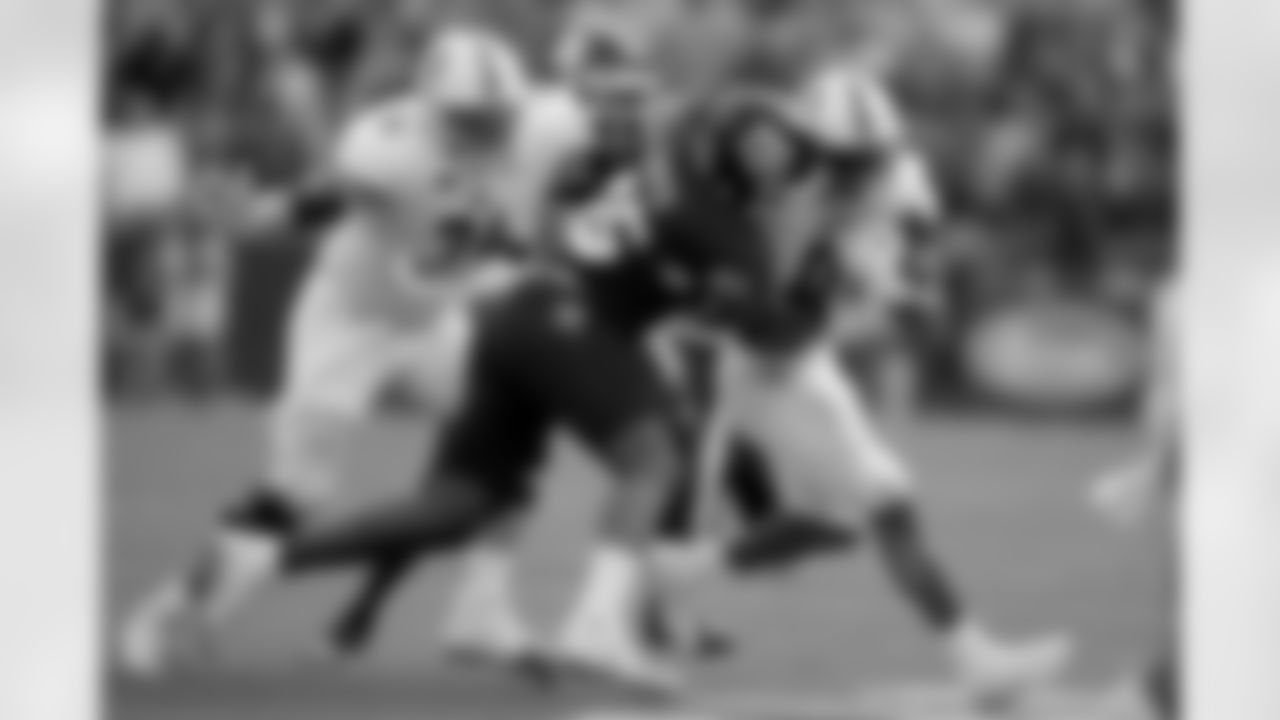
No. 26 Edgerrin Cooper, LB, Texas A&M

No. 16 Laiatu Latu, Edge, UCLA
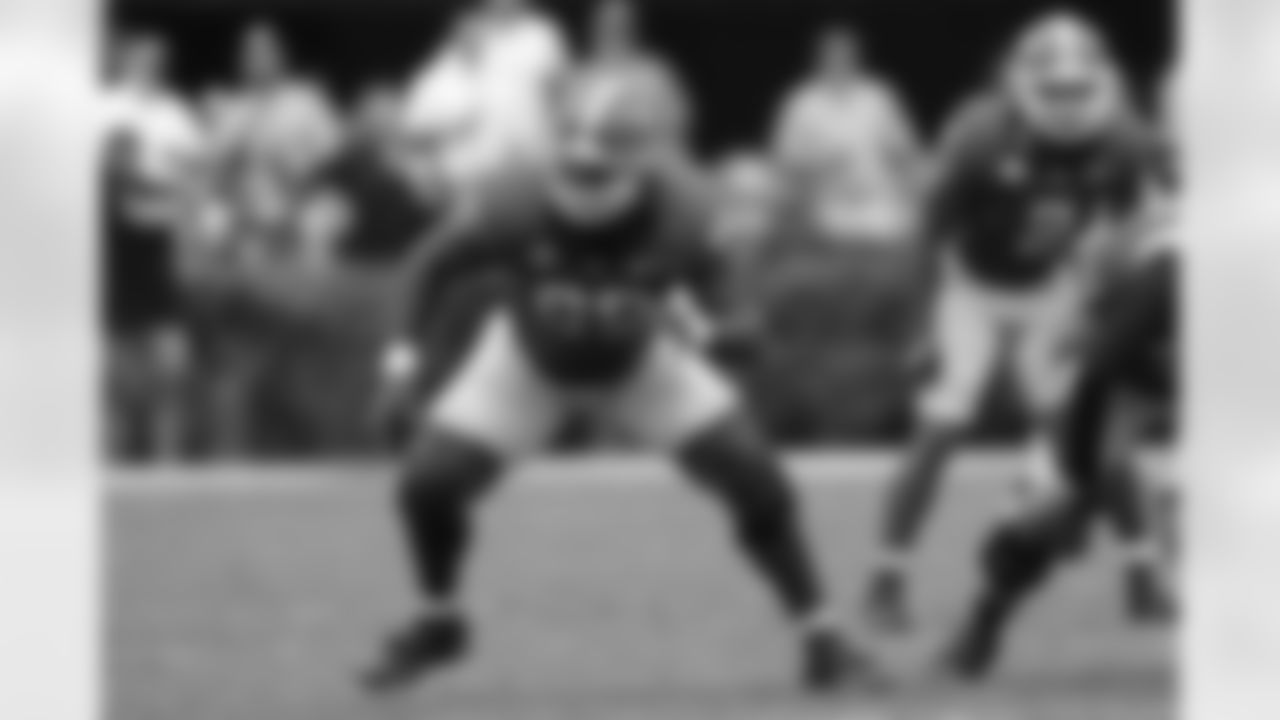
No. 22 Amarius Mims, OT, Georgia

No. 23 Tyler Guyton, OT, Oklahoma

No. 11 Troy Fautanu, OT, Washington

No. 17 Brian Thomas Jr., WR, LSU

No. 13 Quinyon Mitchell, CB, Toledo
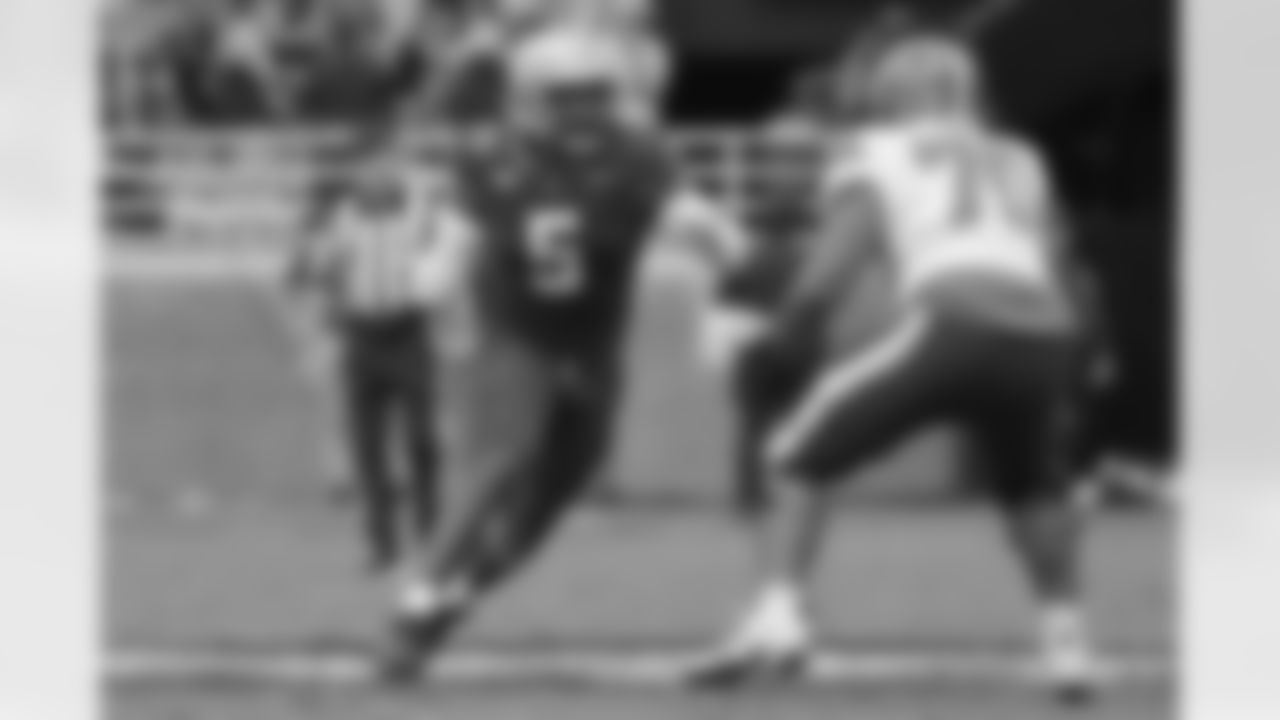
No. 14 Jared Verse, Edge, Florida State
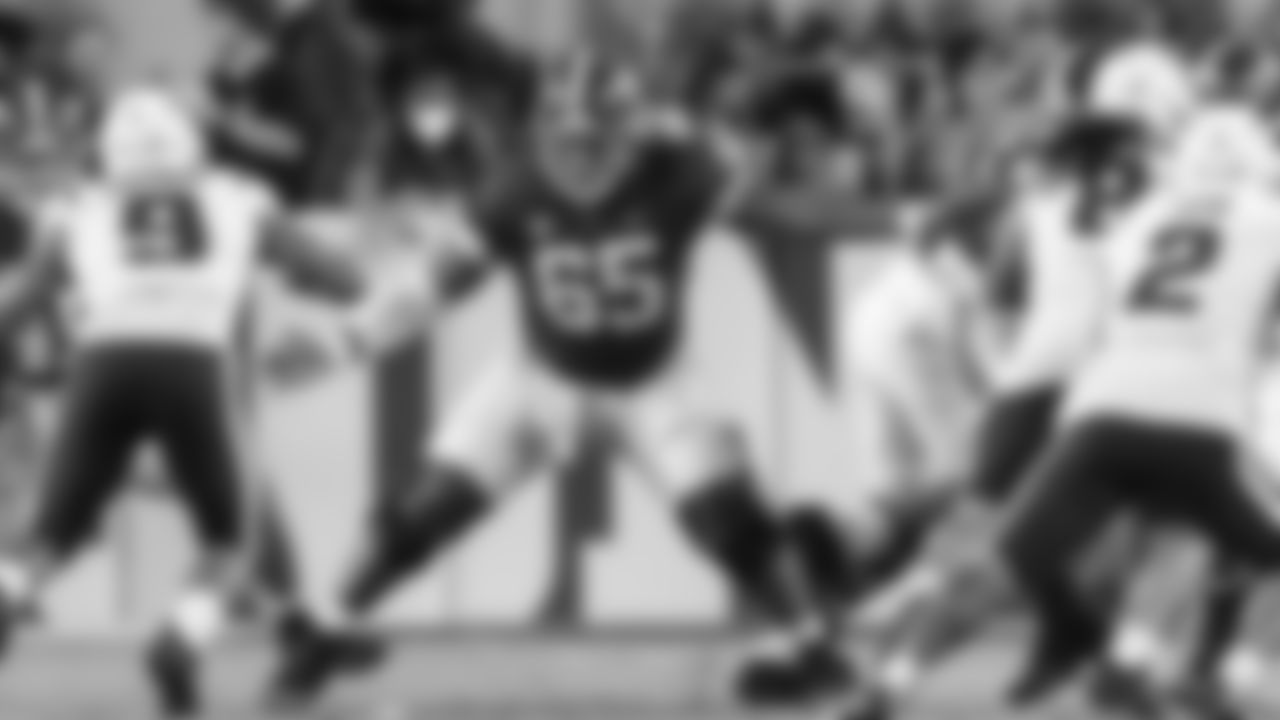
No. 18 JC Latham, OT, Alabama

No. 15 Olumuyiwa Fashanu, OT, Penn State

No. 12 Dallas Turner, Edge, Alabama

No. 10 Taliese Fuaga, OT, Oregon State

No. 8 Joe Alt, OT, Notre Dame

No. 9 Terrion Arnold, CB, Alabama

No. 7 Brock Bowers, TE, Georgia

No. 6 Jayden Daniels, QB, LSU

No. 5 Drake Maye, QB, North Carolina

No. 4 Malik Nabers, WR, LSU

No. 3 Rome Odunze, WR, Washington

No. 2 Marvin Harrison Jr., WR, Ohio State

No. 1 Caleb Williams, QB, USC
The first question for GM Joe Schoen at the NFL Scouting Combine next week will be about Saquon Barkley.
John Schmeelk: Fiction – I think the first question he gets will be about the quarterback position. Based on the exceptions Dan put into the first two statements, quarterback is clearly the most important player on the football field. When evaluating whether a team has a chance to win a championship, the first thing everyone looks at, and rightfully so, is the starting quarterback. With Daniel Jones' injuries last year and the Giants selecting at No. 6 overall, how Schoen handles that position will be the first question he receives and likely the defining decision of the offseason.
Dan Salomone: Fiction – It's going to be, "So, are you keeping the pick or trading it, Joe?" There's always a joker out there.
Lance Medow: Fact – By the time we get to the start of the NFL Scouting Combine, the franchise tag deadline will be a week away, so I'd be stunned if Joe Schoen isn't asked some question connected to the state of negotiations with Saquon Barkley's camp.
Matt Citak: Fact – Since the end of the Giants' season, the biggest question facing the team has been whether or not Barkley would be back in 2024. Schoen told reporters at the Senior Bowl last month that he wouldn't be talking to Barkley's representatives until the combine. Well now that the combine is finally here, I fully expect the team's beat reporters to be all over this storyline. The first question Schoen gets will be about Barkley, and it certainly won't be the last one he gets, either.
Drafting a tight end in the top 10 is too high philosophically.
John Schmeelk: Fiction – But I am on the fence. I understand the financial argument about not saving as much on having a top 10 pick versus a veteran tight end. It's also true tight ends often take longer to succeed as NFL players. Tight ends, however, are very dangerous and vital weapons to modern NFL offenses that want to use personnel groups, formation and schemes to manipulate defenses. The best tight ends can be used like wide receivers to find mismatches. There's also a benefit to having a top three tight end long term, since that player makes half of what a top wide receiver makes when he gets his payday. For the right player, and both Kyle Pitts and Brock Bowers would be included in that group, drafting a tight end in the top 10 is just fine.
Dan Salomone: Fiction – Would you not give up a top 10 pick if you get the career of Travis Kelce or George Kittle? The only position you could ever rule out would be specialists.
Lance Medow: Fiction – You can't generalize when it comes to a position, especially tight end, because certain players at that spot are weapons and can be just as impactful as wide receivers. For example, if you knew what would become of Travis Kelce's career, you wouldn't take him in the top 10? How about George Kittle, Antoino Gates or Jason Witten? Tony Gonzalez was the 13th overall pick in 1997, and that worked out pretty well. Some tight ends can go to teams and emerge as the No. 1 target, while in other cases they're used more as blockers and have less impact. The environment clearly shapes the level of upside, but that doesn't mean I wouldn't consider a tight end in the top 10. If you believe the player can make an immediate impact, become a favorite for your quarterback and take your offense to new heights, then select him and don't think twice.
Matt Citak: Fiction – In most cases, I would advise against taking a tight end in the top 10. However, as an overall philosophy, I'm not against it. The other side of this argument will likely talk about positional value, but every few years, there comes a prospect that some believe is a generational talent at the tight end position. This year it's Brock Bowers, and in recent drafts we've seen it with guys like Kyle Pitts and T.J. Hockenson. Of course, it doesn't always work out, but the same can be said about any position. We've seen around the league what a game-changing tight end can do to an offense. In some cases, that player can develop into a team's top option in the passing game. For a prospect such as Bowers, he should be looked at more as a pass-catcher rather than simply a tight end. I think it takes a special tight end prospect to warrant a top 10 pick, but when one of those guys comes around and you have a need at the position along with a chance to select him, you take it.
View photos of every NFL player selected with the sixth overall pick since the first draft in 1936.
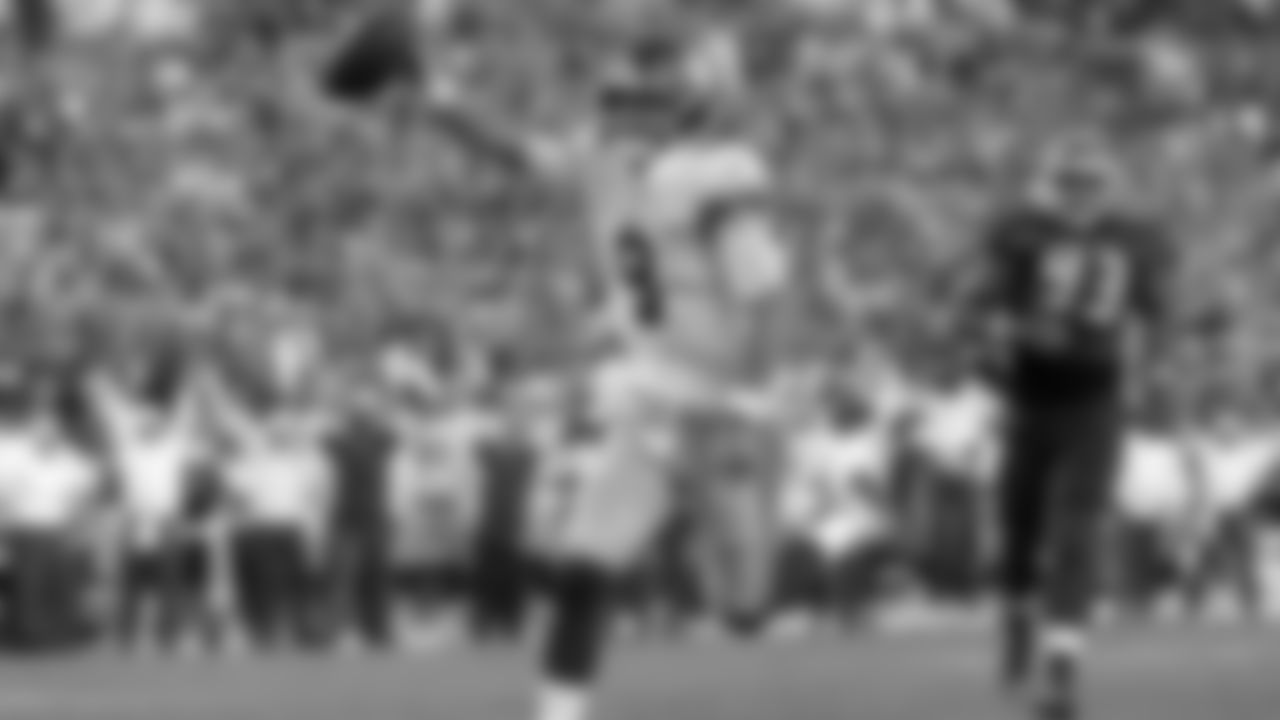

OT Paris Johnson - Arizona Cardinals (2023)
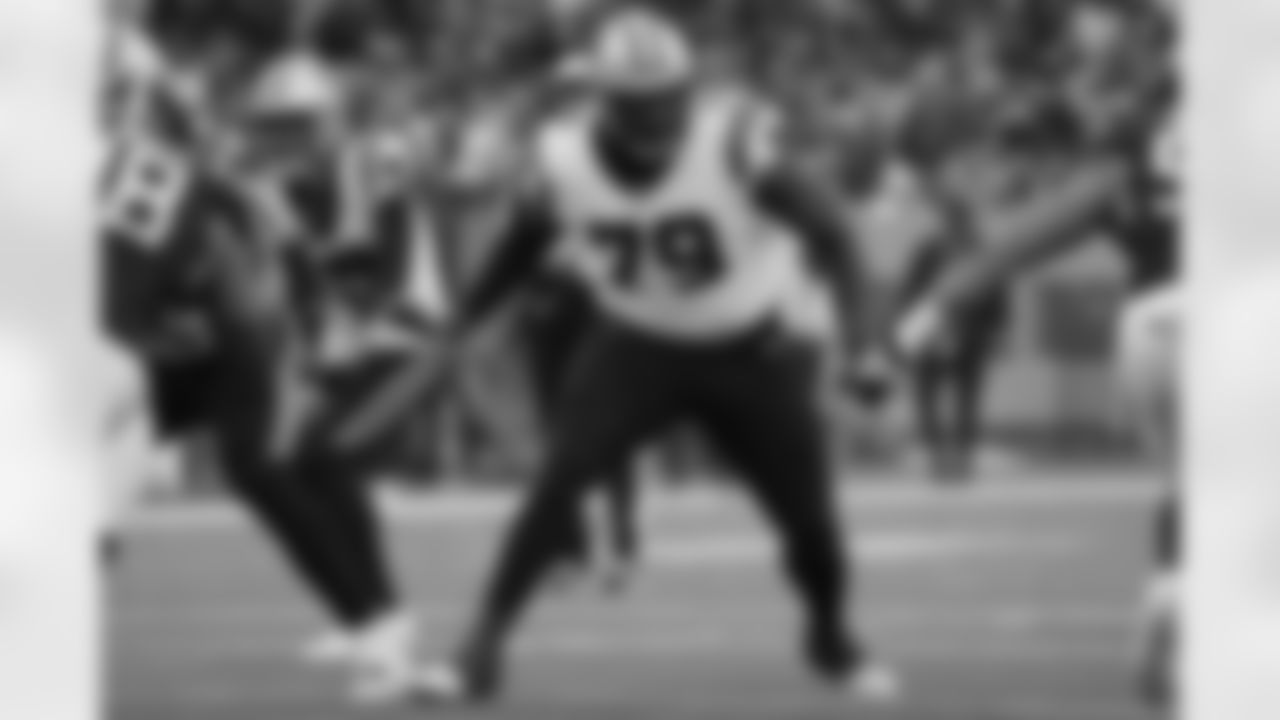
OT Ikem Ekwonu - Carolina Panthers (2022)

WR Jaylen Waddle - Miami Dolphins (2021)

QB Justin Herbert - Los Angeles Chargers (2020)

QB Daniel Jones - New York Giants (2019)

G Quenton Nelson - Indianapolis Colts (2018)

S Jamal Adams - New York Jets (2017)

OT Ronnie Stanley - Baltimore Ravens (2016)

DE Leonard Williams - New York Jets (2015)

OT Jake Matthews - Atlanta Falcons (2014)

DE Barkevious Mingo - Cleveland Browns (2013)

CB Morris Claiborne - Dallas Cowboys (2012)

WR Julio Jones - Atlanta Falcons (2011)
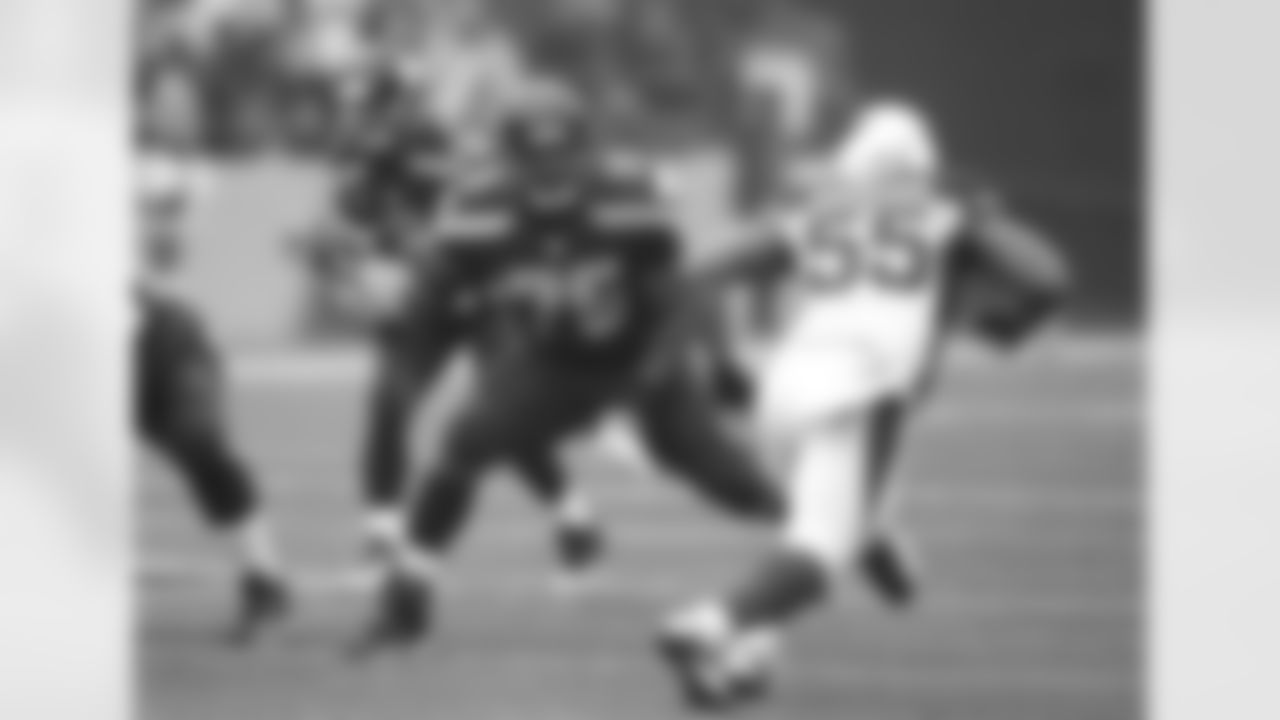
OT Russell Okung - Seattle Seahawks (2010)

OT Andre Smith - Cincinnati Bengals (2009)

LB Vernon Gholston - New York Jets (2008)

S LaRon Landry - Washington Redskins (2007)

TE Vernon Davis - San Francisco 49ers (2006)

CB Adam "Pacman" Jones - Tennessee Titans (2005)

TE Kellen Winslow - Cleveland Browns (2004)

DT Johnathan Sullivan - New Orleans Saints (2003)

DT Ryan Sims - Kansas City Chiefs (2002)

DE Richard Seymour - New England Patriots (2001)

DT Corey Simon - Philadelphia Eagles (2000)

WR Torry Holt - St. Louis Rams (1999)

DE Grant Wistrom – St. Louis Rams (1998)

OT Walter Jones – Seattle Seahawks (1997)

RB Lawrence Phillips – St. Louis Rams (1996)

DE Kevin Carter – St. Louis Rams (1995)

QB Trent Dilfer – Tampa Bay Buccaneers (1994)

DE Eric Curry – Tampa Bay Buccaneers (1993)

QB David Klingler – Cincinnati Bengals (1992)

DT Eric Swann – Phoenix Cardinals (1991)

S Mark Carrier – Chicago Bears (1990)

LB Broderick Thomas – Tampa Bay Buccaneers (1989)

WR Tim Brown – Los Angeles Raiders (1988)

QB Kelly Stouffer – St. Louis Cardinals (1987)
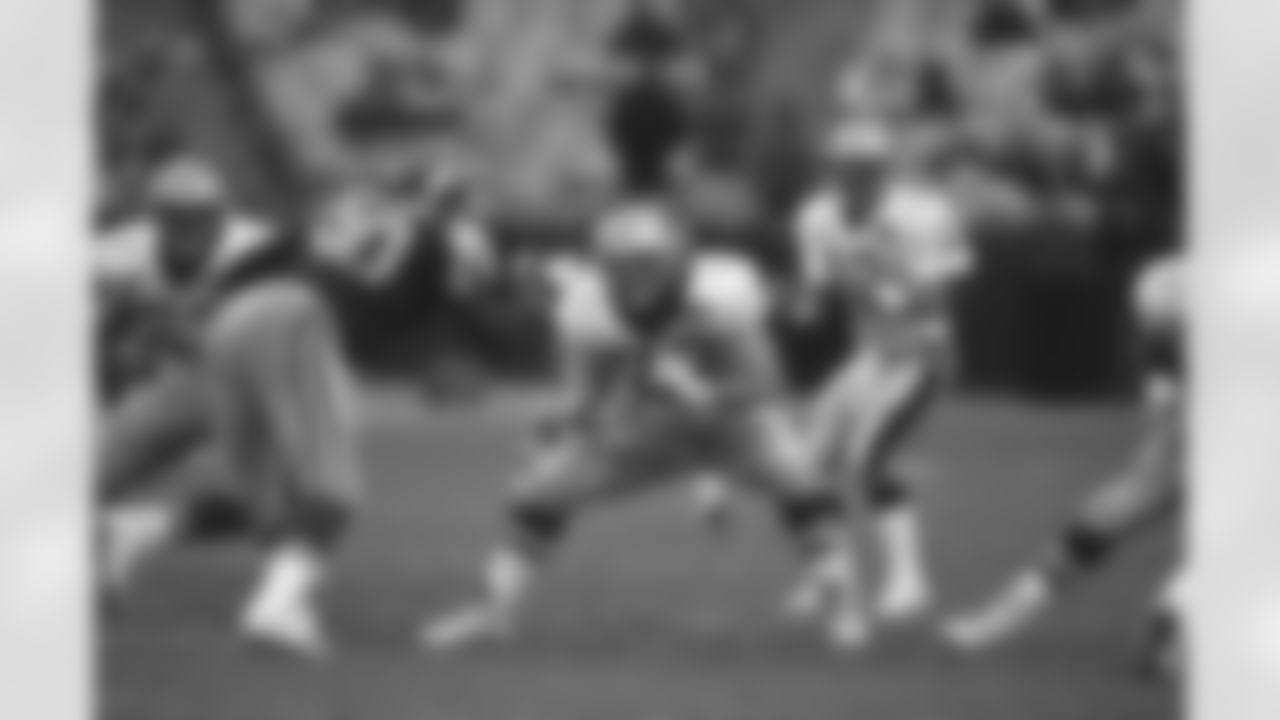
G Jim Dombrowski – New Orleans Saints (1986)

OT Lomas Brown – Detroit Lions (1985)

DB Mossy Cade – San Diego Chargers (1984)

OT Jim Covert – Chicago Bears (1983)

DE Jeff Bryant – Seattle Seahawks (1982)

QB Rich Campbell – Green Bay Packers (1981)

DE Curtis Greer – St. Louis Cardinals (1980)

LB Barry Krauss – Baltimore Colts (1979)

WR James Lofton – Green Bay Packers (1978)

OT Warren Bryant – Atlanta Falcons (1977)

QB Richard Todd – New York Jets (1976)

LB Robert Brazile – Houston Oilers (1975)

DT Carl Barzilauskas – New York Jets (1974)

TE Charle Young – Philadelphia Eagles (1973)

OT Greg Sampson – Houston Oilers (1972)

RB John Riggins – New York Jets (1971)

LB Steve Zabel – Philadelphia Eagles (1970)

WR Ron Sellers – Boston Patriots (1969)

DE Dennis Byrd – Boston Patriots (1968)
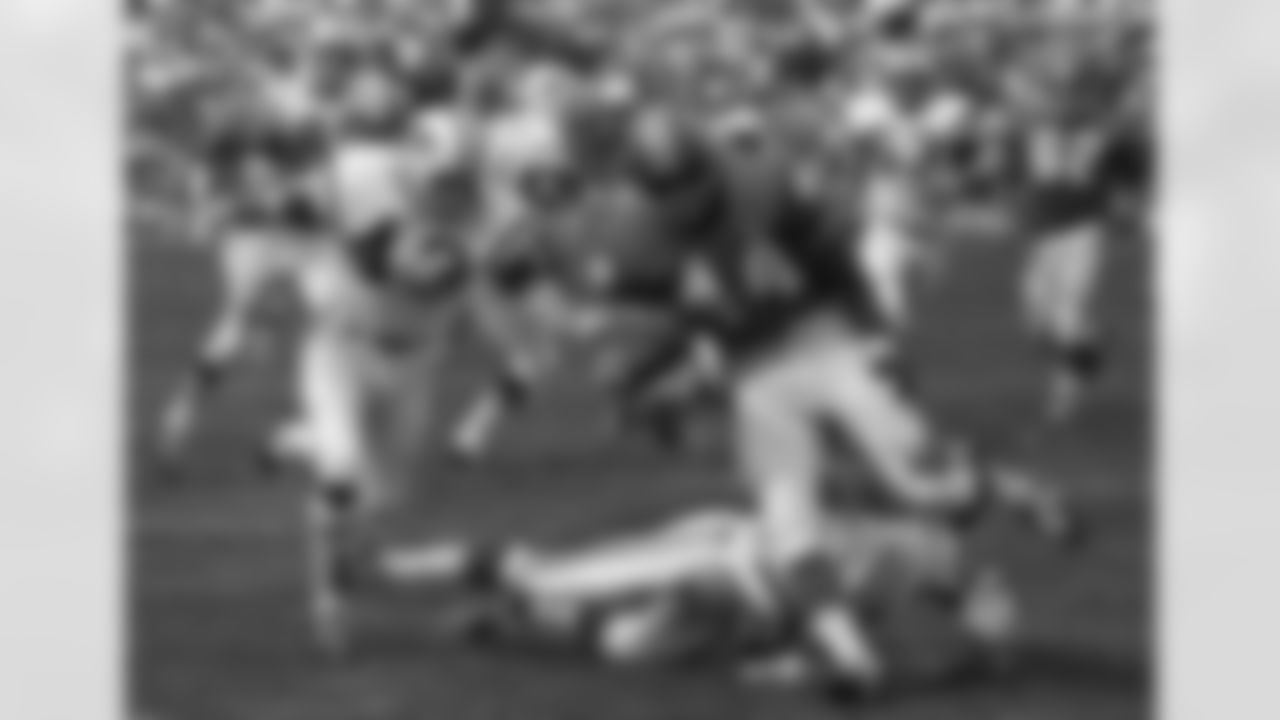
RB Floyd Little – Denver Broncos (1967)

K Charlie Gogolak – Washington Redskins (1966)

DT Steve DeLong – Chicago Bears/San Diego Chargers (1965)

DE Carl Eller – Minnesota Vikings (1964)

LB Lee Roy Jordan – Dallas Cowboys (1963)
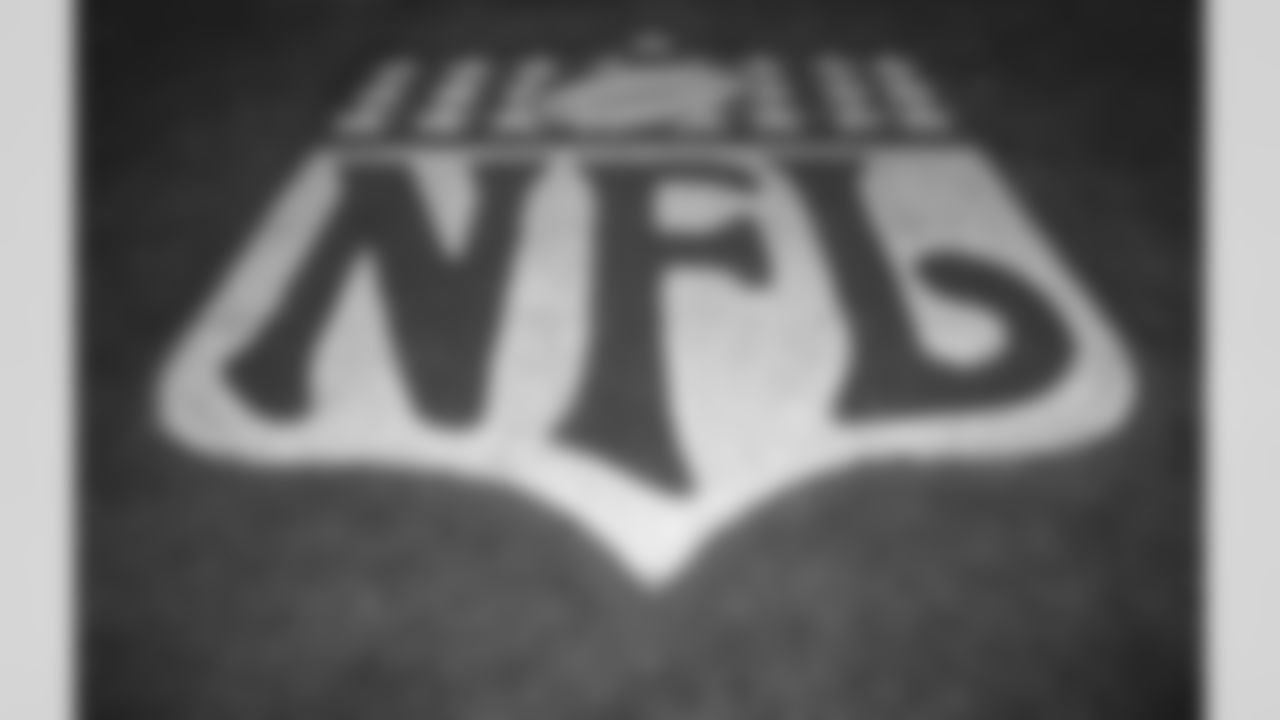
T Fate Echols – St. Louis Cardinals (1962)

DB Jimmy Johnson – San Francisco 49ers (1961)

RB Jack Spikes – Pittsburgh Steelers (1960)

RB Nick Pietrosante – Detroit Lions (1959)

RB Walt Kowalczyk – Philadelphia Eagles (1958)

RB Jim Brown – Cleveland Browns (1957)

RB Joe Marconi – Los Angeles Rams (1956)

T Frank Varrichione – Pittsburgh Steelers (1955)

DB Stan Wallace – Chicago Bears (1954)

RB Billy Anderson – Chicago Bears (1953)
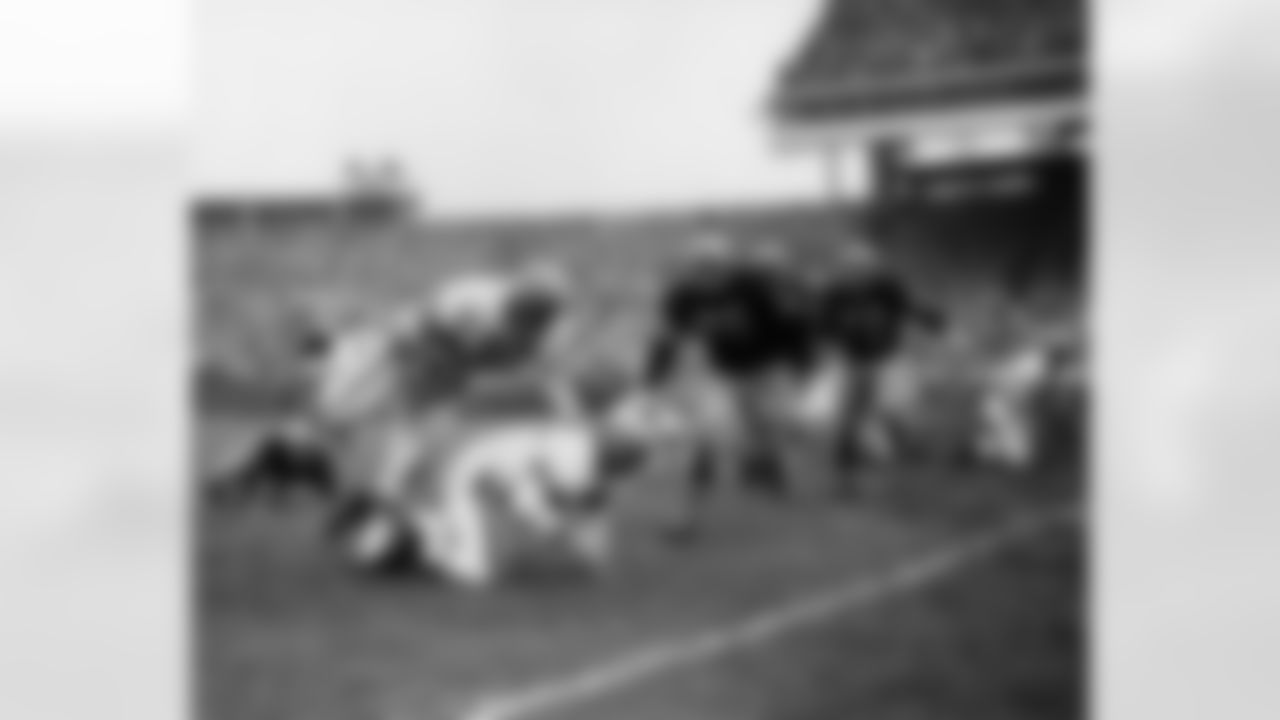
FB Ed Modzelewski – Pittsburgh Steelers (1952)

C Jerry Groom – Chicago Cardinals (1951)

HB/DB George Thomas – Washington Redskins (1950)

RB Bob Gage – Pittsburgh Steelers (1949)

QB Y.A. Tittle – Detroit Lions (1948)

QB Ernie Case – Green Bay Packers (1947)

RB Johnny Strzykalski – Green Bay Packers (1946)

C Frank Szymanski – Detroit Lions (1945)

HB Billy Hillenbrand – New York Giants (1944)

B Steve Filipowicz – New York Giants (1943)

B Spec Sanders – Washington Redskins (1942)

B George Franck – New York Giants (1941)

QB Doyle Nave – Detroit Lions (1940)

B Bill Osmanski – Chicago Bears (1939)

C Alex Wojciechowicz – Detroit Lions (1938)
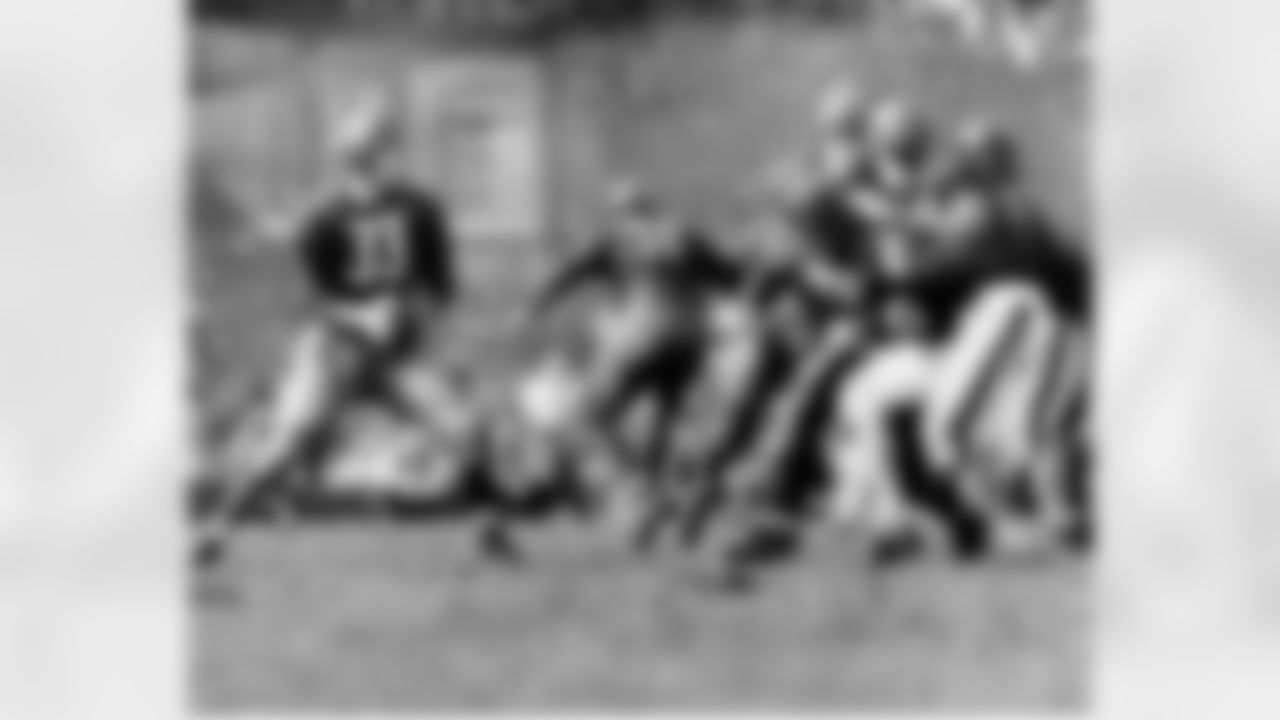
QB Sammy Baugh – Washington Redskins (1937)

T Joe Stydahar – Chicago Bears (1936)




















